
 |
|
#13
|
|||
|
|||
|
I made it!!!
Today I took the strings off to see what's goin' on with the nut and, to my surprise, the nut just came off as I lightly pull it! It was just seated in the slot without any glue... no harm done to the fingerboard or to the headstock veneer! 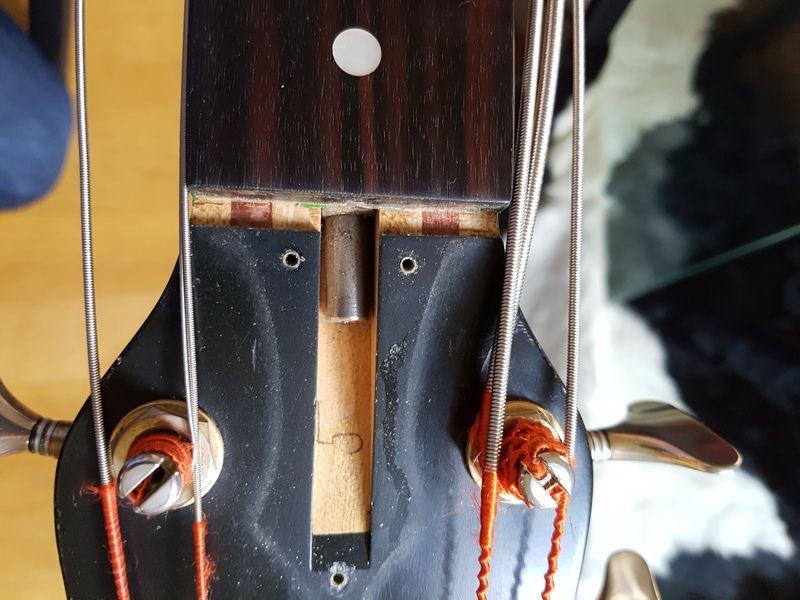 As I suspected a tiny strip of wood (about 0.50 mm) was glued to the bottom of the nut.. 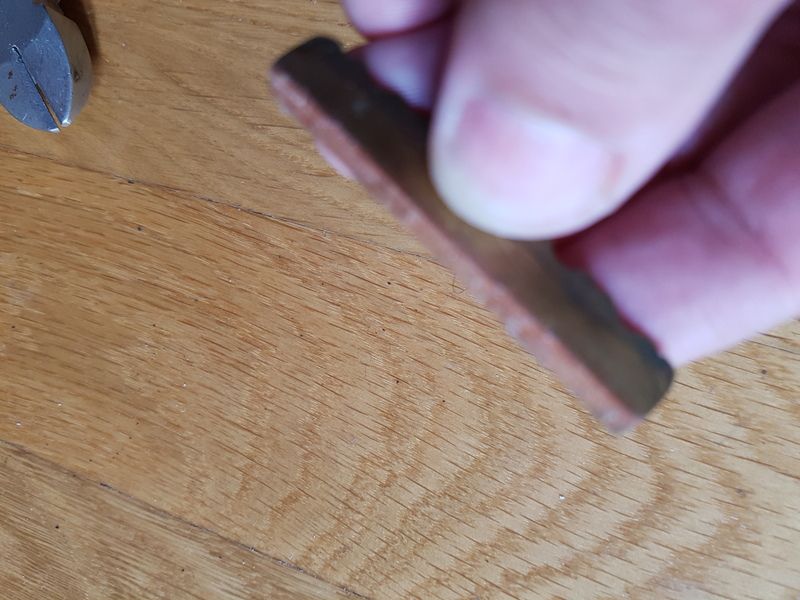 As Ken suggested this was probably done because the previous owner was a heavy handed groover and liked higher action in the first five frets region. It also explain the wear on those frets and the fact that the finish in that area of neck back is totally gone... Anyway, I cut off the wood veneer with a razor blade and then sanded off any glue residual with a fine sandpaper. Here's how the bottom of the nut looked like as I finished the job.. 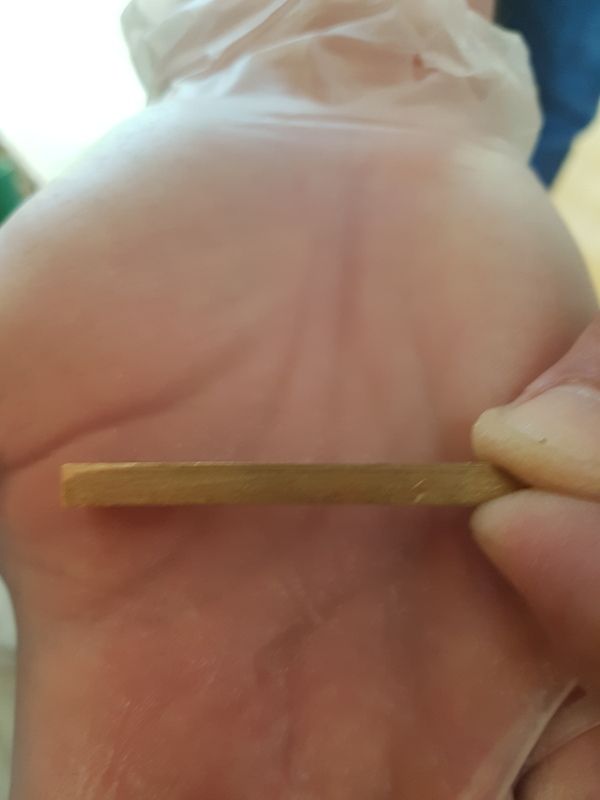 A nice rub of metal polish and here's the nut in its all original shining glory... 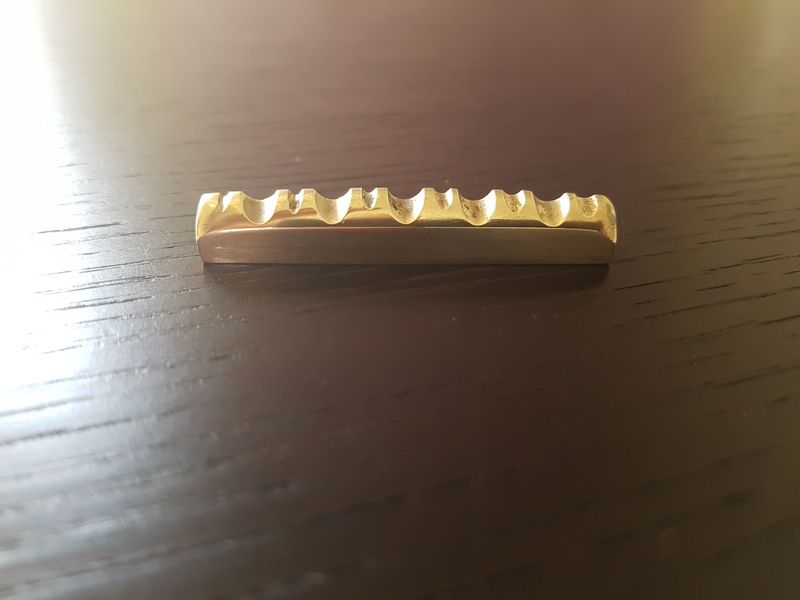 Fitted the nut in its slot, strung the bass and... voil√*... PERFECT. I also discovered that the nut wasn't damaged or sanded in any way. That small gap on the B string side was because it slightly shifted when it was installed. So I put under slight tension the outer strings first, perfectly centered the nut and then strung all the strings to pitch. Worked like a charm! 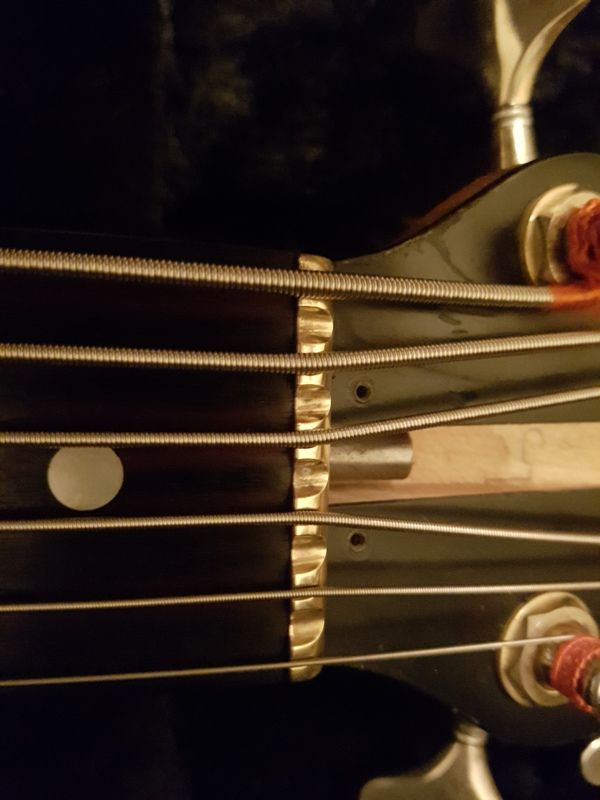 Now, the action dropped down of 0.50 mm and the whole thing plays like butter all across the fingerboard with no fret buzz at all! I'll probably wait a little and then will raise the bridge saddle a hair to better suit my right hand touch. I'm soooo happy!!! |
| Currently Active Users Viewing This Thread: 1 (0 members and 1 guests) | |
| Thread Tools | |
| Display Modes | |
|
|